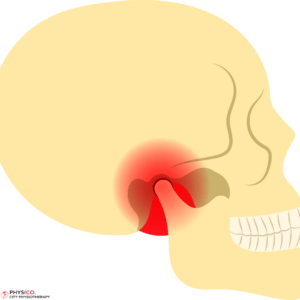What is TMJ?
TMJ stands for the temporomandibular joint, which connects your jaw to your skull, located just in front of your ear. This joint plays a vital role in everyday activities such as eating, speaking, and yawning. Since it’s constantly in use, the TMJ is exposed to significant forces, making it vulnerable to stress or injury.
The TMJ contains a small disc that cushions the joint, and like other joints, it can become strained or damaged due to trauma or conditions like arthritis. When the TMJ doesn’t function properly, it’s referred to as temporomandibular joint dysfunction (TMD).


